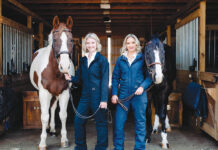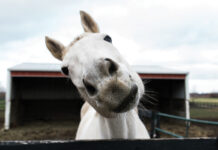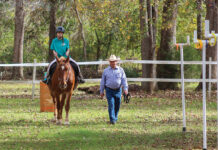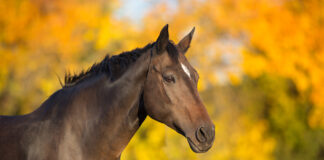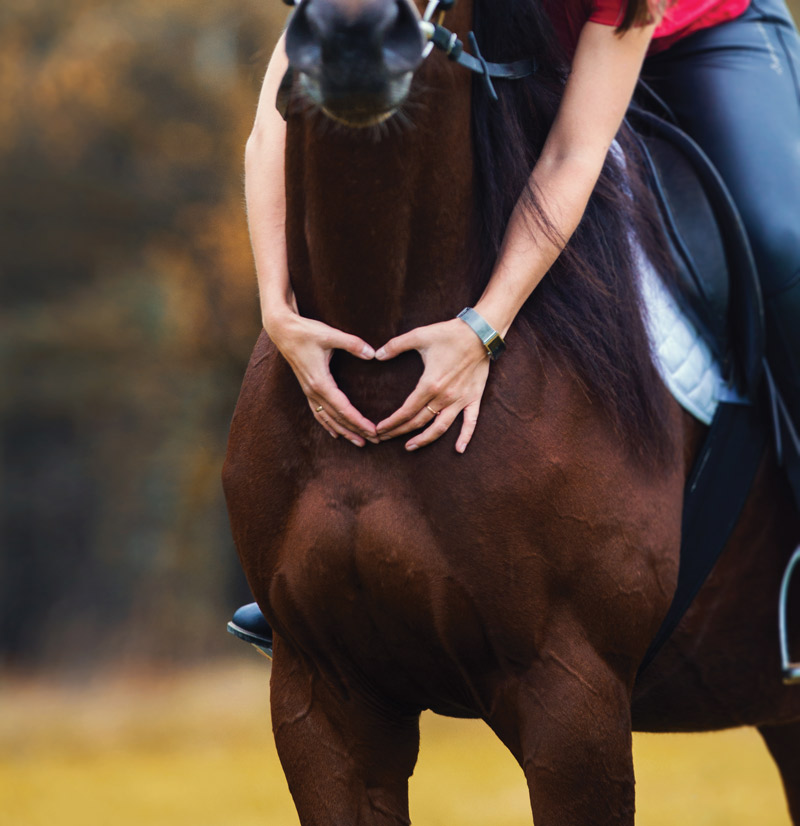
Matchmaking is both an art and a science. Days End Farm Horse Rescue (DEFHR) in Lisbon, Md., has a 30-plus year history of rehabilitating and rehoming horses, and it has a specific adoption process in place to help match the right owner with the right horse. However, the unexpected success happens more often than you might think, says Sara Strauss, DEFHR’s head horse trainer.
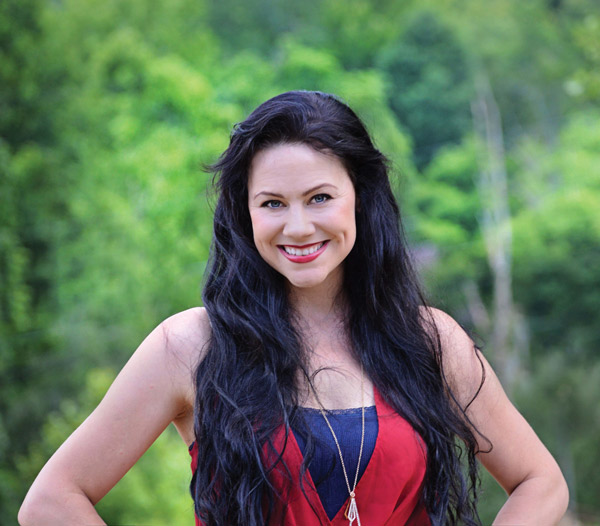
Heart of Phoenix Rescue (HOP) is West Virginia’s largest equine advocacy organization, providing rescue to horses and education to horse owners throughout the Appalachian region. With over 600 horses placed since 2009, founder Tinia Creamer has had a hand in making many successful horse adoption matches.
“We use a screening process, and I like to think of it as a guiding process for the potential adopter as well,” says Creamer, who adds that the majority of matches fall predictably in line with the organization’s screening process, although there are exceptions.
“We have seen adopters stick it out and seek out assistance because they did have a connection with the horse,” adds Creamer. “And that’s real. Having a connection to a horse, even if it’s not going to be textbook easy, is real. We don’t want to make it impossible for someone if they are willing to seek training and continued support for a horse a bit above their current skill level.”
The Matching Process
The information gathered in HOP’s screening process is essential to finding the right fit.
“In addition to getting a general sense of personality, our process looks at everything from an adopter’s experience and ability to care for a horse, to how they might handle potential issues that arise and who they can turn to for support,” says Creamer.
This is where the matchmaking begins. Creamer and her team, who know the horses well, can narrow down which ones an adopter should meet. While Creamer acknowledges that the application process can seem tedious, she says that adopters ultimately see how important it is when they find the right horse.
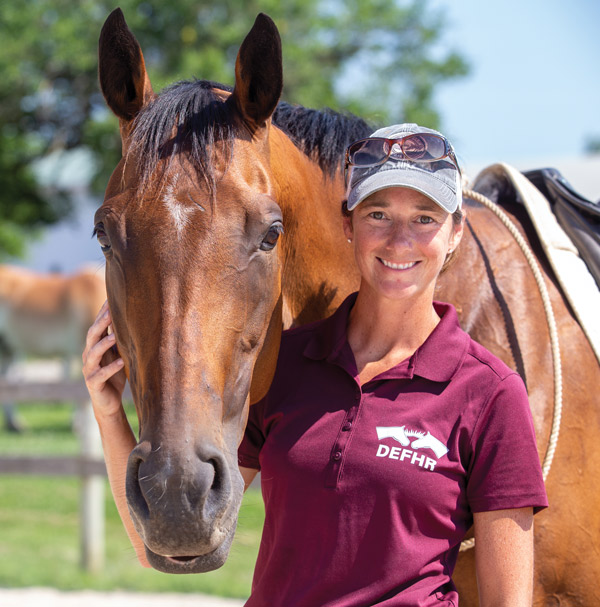
According to Strauss, DEFHR staff’s relationship with the horse, built on average over six months of training, is the starting point for a successful horse adoption match.
“Because of that relationship, we really know if an adopter is a suitable match for the horse based on their experience and what they are looking to do with the horse,” she explains. “What solidifies the decision is how the horse interacts with the potential adopter. We also look at what the horse is capable of doing and what the expectations of the adopter are.”
Questions to Ask
Finding the right horse is a conversation with questions for both parties. At DEFHR, potential adopters complete a horse interest form that asks questions about their riding and horse handling experience, what disciplines they plan to use the horse for, as well as why they would like to adopt from DEFHR.
However, Strauss explains that it’s a two-way street. “[Adopters should] ask a lot of questions but also be open to listening as well,” she says. “We provide a ton of information during the initial call and the appointments, but it can be overwhelming to take it all in, especially when the potential adopter is super excited to meet the horse. It’s good to bring along a friend or trainer who can reiterate what we say or even jot down notes for them.”
For those looking to adopt, it’s good to ask yourself :
◆ Am I financially ready to adopt?
◆ Am I ready to start the adoption process?
◆ Why am I inquiring about this particular horse?
Strauss and Creamer recommend potential adopters ask the organization the following:
◆ What do you want to know about my horse experience?
◆ Is this horse is a good match for me?
◆ What has the rescue done in regards to the horse’s training?
◆ Has the horse done anything unsafe that the rescue is aware of?
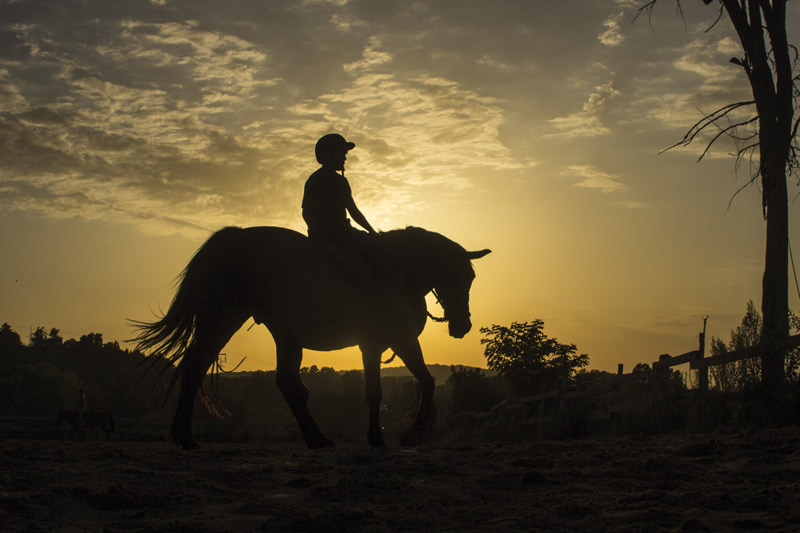
Creamer says that potential adopters should absolutely feel comfortable asking the tough questions about the horse’s background and their experience with it. In turn, she says, the rescue should be 100 percent comfortable answering those questions transparently.
An adopter should also ask about the policy if the adoption doesn’t work out, says Creamer, whose organization offers a “Right Horse, Right Match” guarantee.
“No matter how much a person and an organization tries, adoptions fail for reasons that you sometimes can’t foresee,” she says. “If we [both] realize that it’s not going to work, the horse comes back to us. It’s a non-judgemental easy, safe process; it’s not stressful, and you know that horse has a safe place to go and you aren’t left holding on to an animal that isn’t a good fit when you did your due diligence to try to find a good fit.”
Meet and Greet
The meeting between a potential adopter and the horse they are interested in reveals a lot.
“This allows us to see the person in action and assess their skill set with a horse in tow,” explains Strauss. “It’s great because the potential adopter will be able to catch, lead, groom and tack up the horse, and we can observe how the horse interacts with them. I also think people feel more open to talking and sharing when they are around a horse, so it’s a good time to listen.”
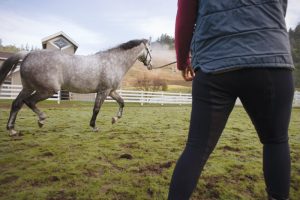
Creamer likes having an objective person, such as a trainer or instructor, to help guide the meeting, as Strauss noted earlier. Meeting a horse can be emotional and euphoric, and that person can serve as a grounding influence.
“We’re looking objectively—does this horse really fit your goals and where you are now?” says Creamer. “If he doesn’t, are you willing to work with a trainer? Looking at the big picture, are you going to outgrow this horse soon, and is what you’re wanting to do with the horse what the horse wants to do? Does your best life with the horse look like the horse’s best life? Because maybe you want to show, and the horse really wants to be a trail horse.”
And sometimes it isn’t a match.
“I think people can allow themselves to fall in love with a horse through a photo or video because it’s only capturing the horse in one moment,” shares Strauss. “What’s more important is that the adopter can handle the horse safely in multiple scenarios, such as catching the horse in the field, riding him, holding the horse for the farrier, et cetera.
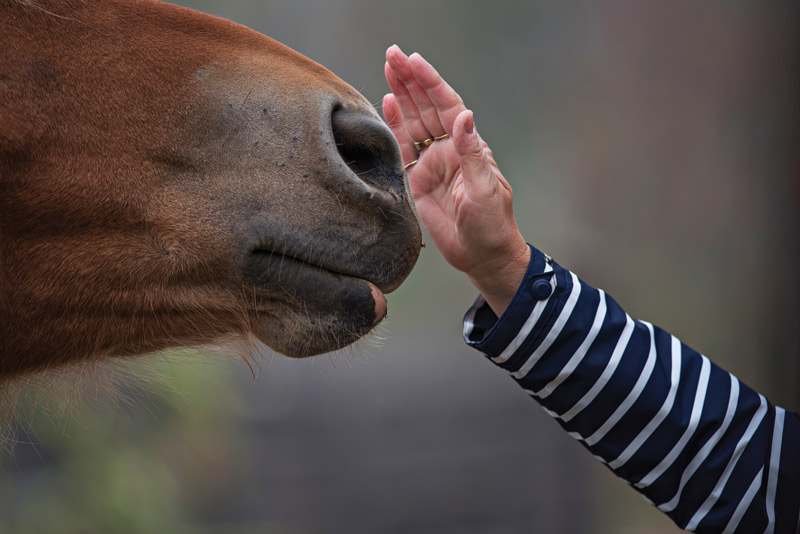
“We are good at listening to people and asking questions that truly reveal their experience and figuring out the difference between what you want and what you need,” continues Strauss. “I think we can help guide them to a different horse or even a different rescue by being honest and explaining why they wouldn’t be a good fit and letting them know that we are looking out for their safety and enjoyment.”
Adoption Advantages
The benefits of adopting start during the matchmaking process and extend well beyond. As Creamer explains, a good rescue is only concerned about a good placement, so you’re going to have a support team helping you along the way to avoid a decision that could ultimately be very costly or cause you or your child (if the horse is meant for a youth) to wind up injured.
There’s also continuing support afterward for any kind of help adopters need through the transition process and beyond.
“When you adopt a horse from DEFHR, you are joining a family,” says Strauss. “We pride ourselves in being upfront and honest; wanting the best for the horse but also for the person involved.”
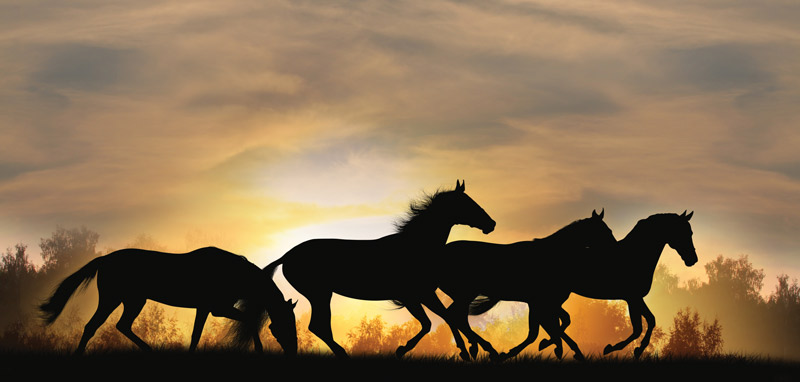
And if an adopter experiences financial or health setbacks, or the horse is no longer a good fit for them, the horse has a safe place.
“That’s a worry you never have to carry—you know that there’s a team behind that horse to make sure that he stays safe,” says Creamer.
Creamer advises anyone looking for a horse to be really committed to finding a good fit.
“The right horse is out there—don’t get discouraged and don’t get in a rush.”
This article about making the best horse adoption match appeared in the January/February 2021 issue of Horse Illustrated magazine. Click here to subscribe!

